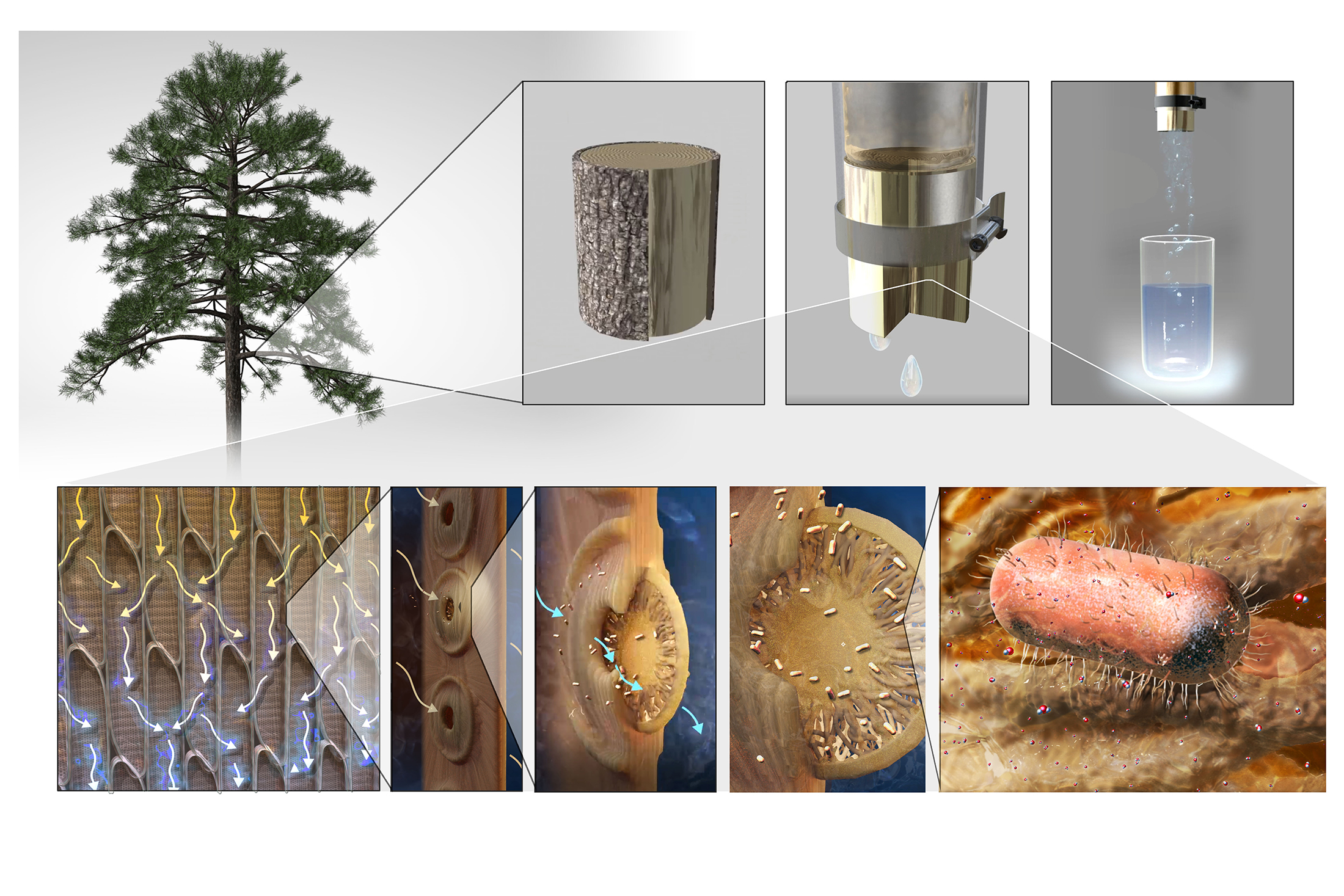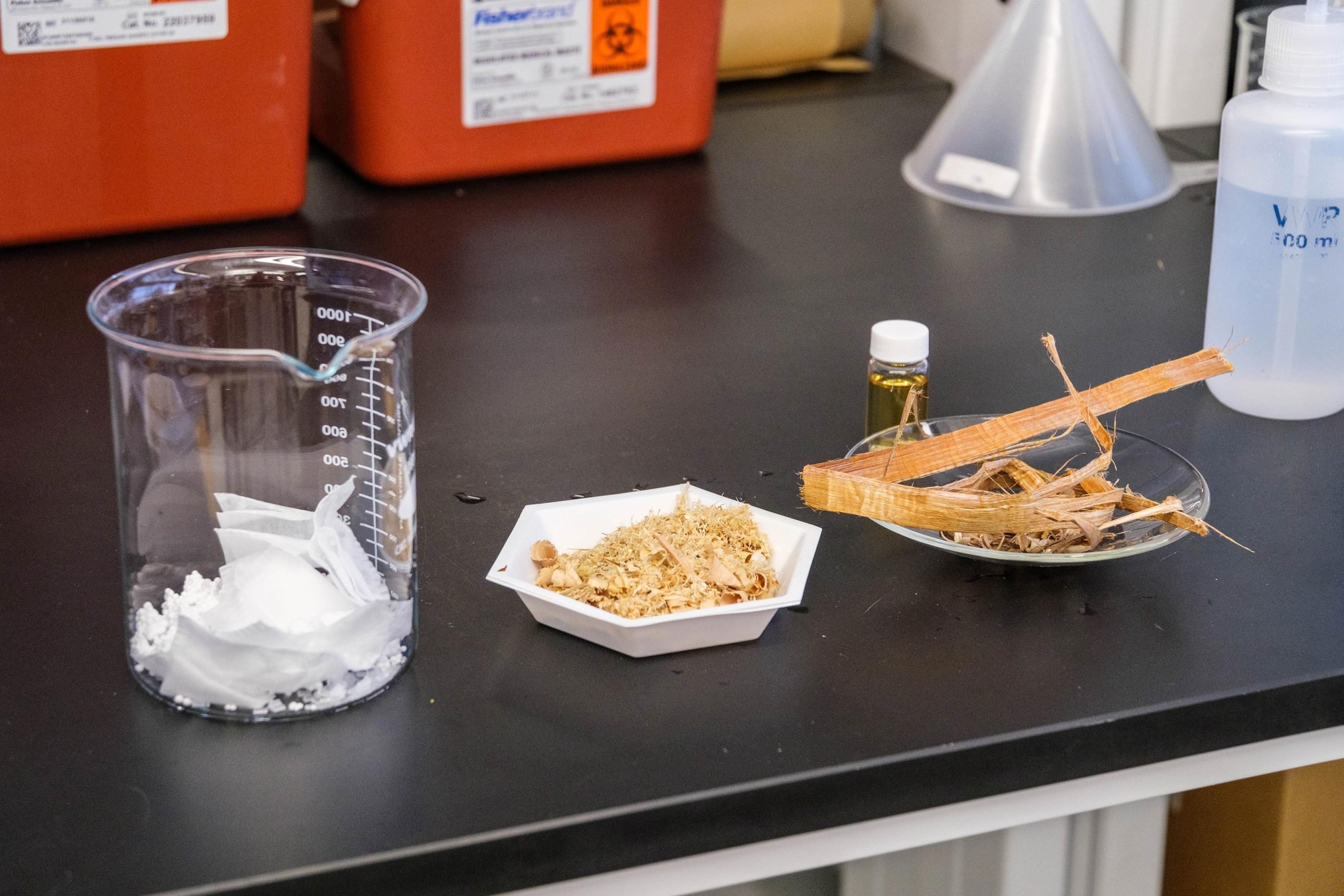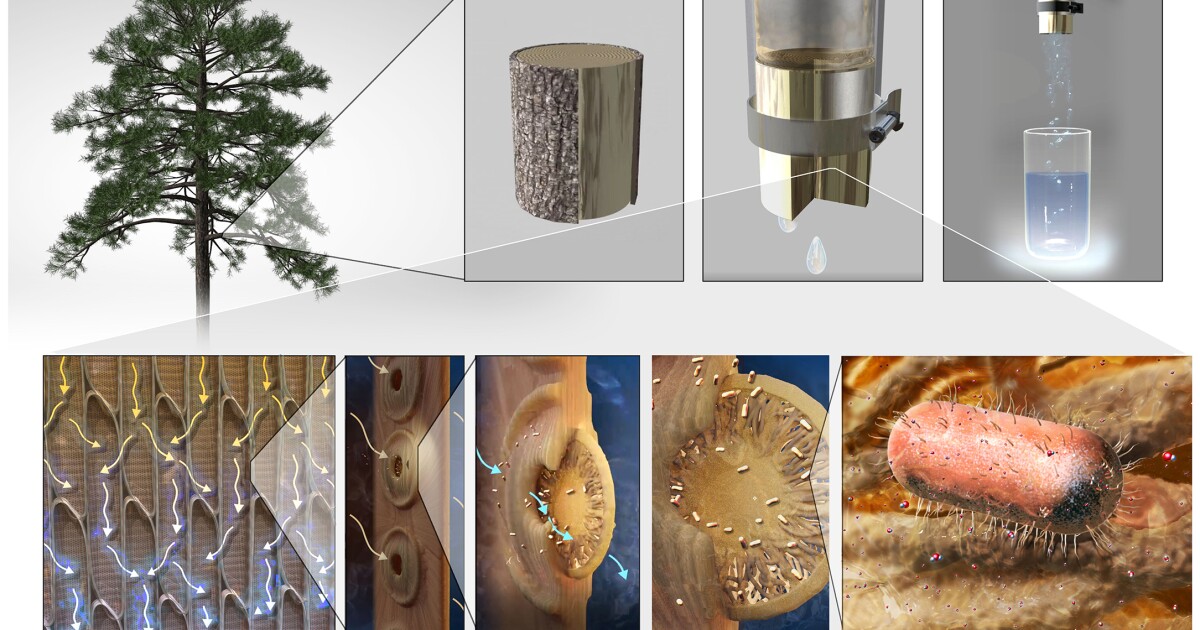- Microplastics-Free
- Posts
- Nature’s Answer to Clean Water: How Wood-Based Filters Remove Bacteria and Microplastics
Nature’s Answer to Clean Water: How Wood-Based Filters Remove Bacteria and Microplastics
In the quest for sustainable and affordable water purification methods, scientists have turned to an unlikely source: wood.
Recent innovations reveal that slices of wood and wood-derived materials can effectively filter out harmful bacteria and microplastics from water, offering promising solutions for global water safety challenges.
Sapwood: A Natural Bacteria Filter
Researchers at the Massachusetts Institute of Technology (MIT) have developed a low-cost water filter using sapwood from tree branches. Sapwood contains xylem tissue—straw-like conduits that transport water within trees—interconnected by thin membranes that act as natural sieves. These membranes can trap bacteria, effectively purifying water.
In laboratory tests, these sapwood filters removed over 99% of E. coli bacteria from contaminated water. Further field tests in India demonstrated the filters' effectiveness in real-world conditions, successfully removing bacteria from various water sources, including spring, tap, and groundwater. The filters are simple to produce, have a shelf-life of at least two years when stored dry, and can purify water at a rate of one liter per hour.
Wood Dust: Trapping Microplastics
Addressing the pervasive issue of microplastic pollution, scientists at the University of British Columbia (UBC) have developed a plant-based filter known as "bioCap." This innovative device utilizes wood dust combined with tannins—natural compounds found in plants—to create a filter that can trap up to 99.9% of microplastic particles present in water.
The bioCap filter offers a scalable and sustainable solution to microplastic contamination, leveraging renewable and biodegradable materials. Its development marks a significant step forward in combating microplastic pollution in water sources.
Implications and Future Prospects
These wood-based filtration technologies present eco-friendly, cost-effective alternatives to conventional water purification methods. Their simplicity and efficiency make them particularly suitable for rural and resource-limited settings, where access to clean water is often a pressing concern.
As research continues, such natural filtration systems could play a crucial role in global efforts to ensure safe drinking water and address environmental pollution challenges.



